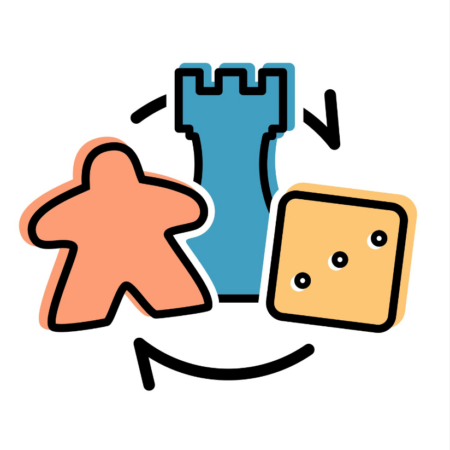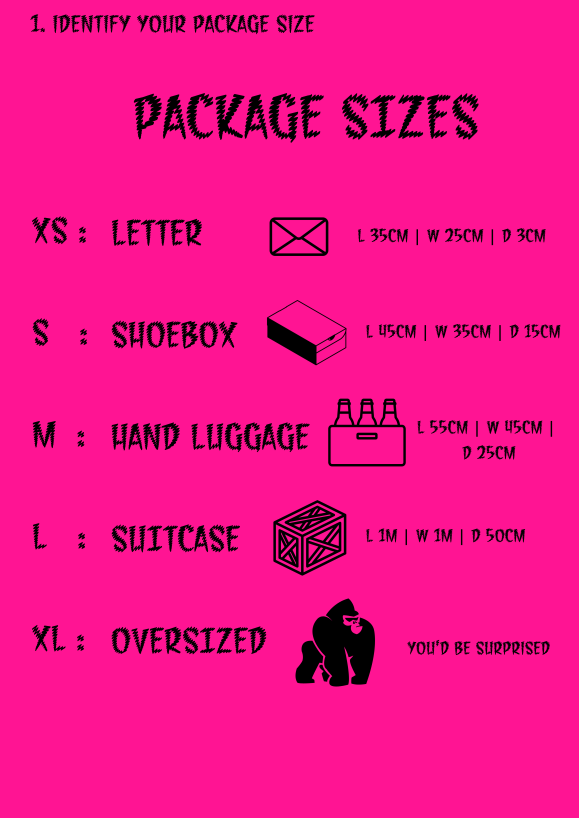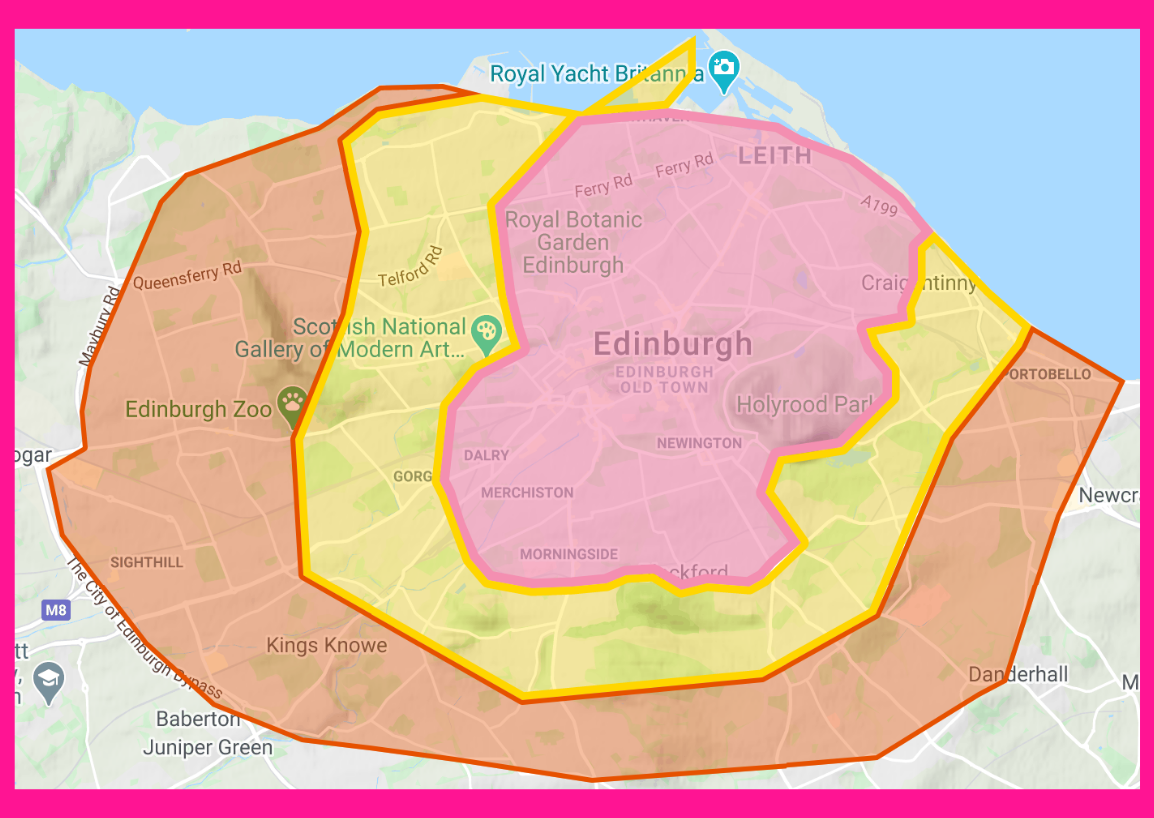Hello Jess! You’ve been volunteering with us for a few years now! How did it all start?
Back in 2018 or so, I had some free time (what a feeling!) and was looking for a volunteering opportunity. As a keen maker and craftsperson (though primarily with textiles rather than wood) I’d been a member of the tool library for around a year and had taken part in a couple of classes, so I signed up to volunteer. At this point I had grand ambitions of becoming a woodworking genius, but very little skill to speak of – my aim was to help out on the admin side of things, and learn more about woodworking as I went. I started off with processing the lending and borrowing of tools, and gradually progressed to helping out at the open workshop sessions.
How are your woodworking skills coming along?
I wouldn’t say my visions of woodworking mastery have wholly materialised, but I am staggered by how much I’ve learnt from other volunteers and members. I now run inductions in the Portobello workshop, monitor open sessions, and occasionally help out at workshop week classes – I’m hoping to lead one myself some time soon.
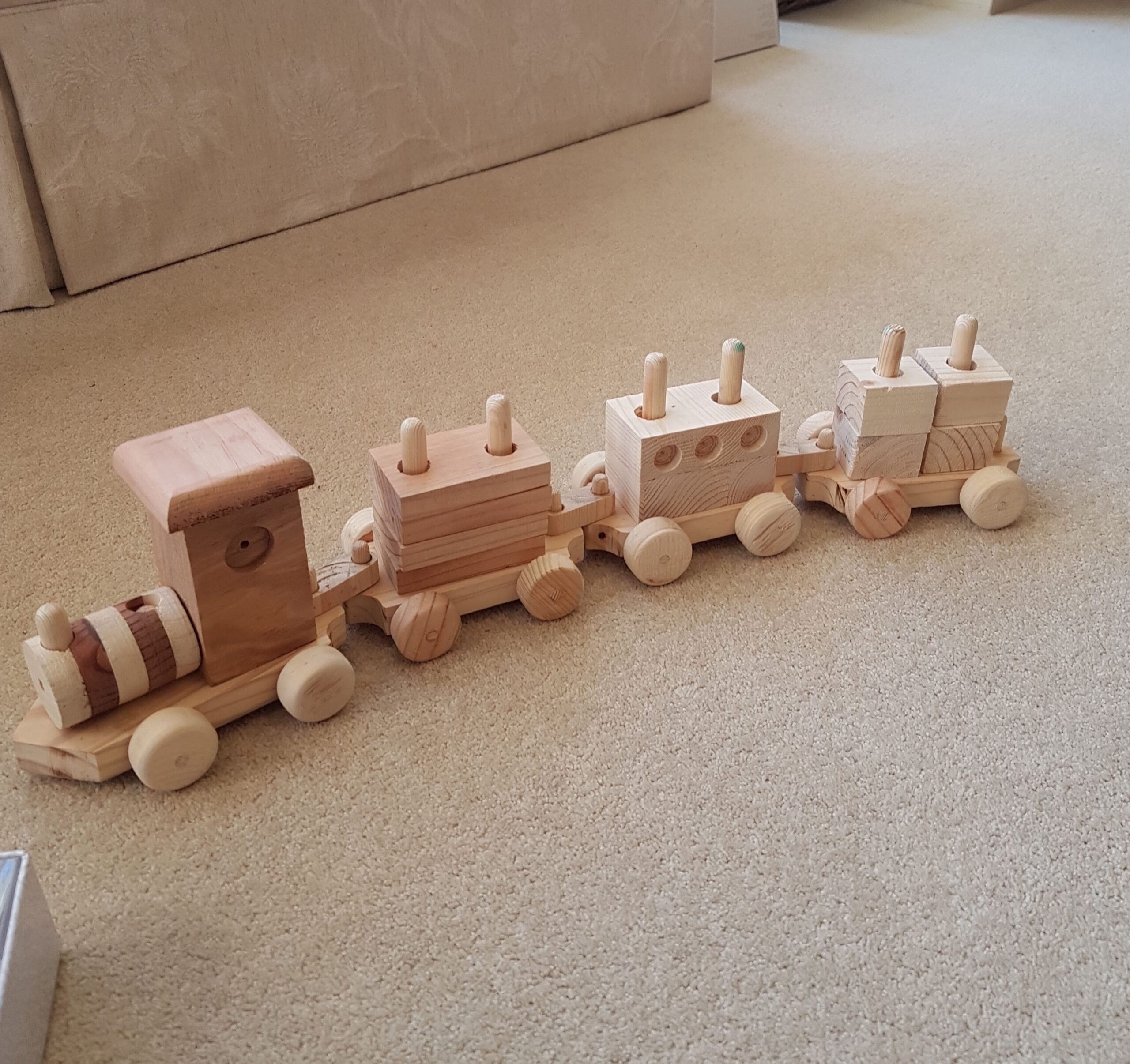
Why is volunteering with us important to you?
What started out as a way to fill some spare time and practise my woodworking skills has become a fierce passion. I volunteer because I passionately want sharing libraries to exist and to be affordable, community run services. If you’re considering volunteering, I can’t recommend it enough.
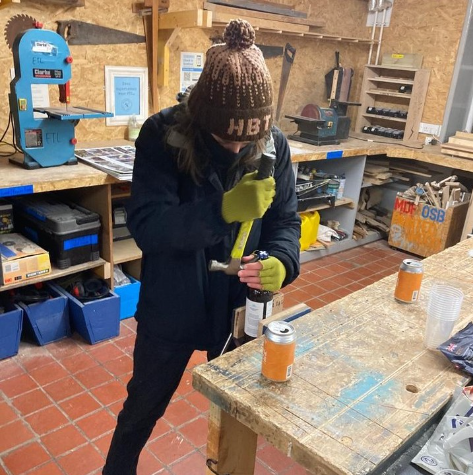
My woodworking skills have come so far through being in the workshop – As a volunteer, I give members advice on their woodworking projects, but I also learn a huge amount from other volunteers and from our members themselves. There’s rarely one sole way to approach a build, and hearing suggestions from other volunteers and members has taught me dozens of new techniques. I’m constantly inspired by the incredible things our members come in and make – most recently, a pitch perfect marimba!
Volunteering brings me a sense of fulfilment away from my daily 9-5, and not just because it’s a break from a computer screen; I am actively choosing to give my free time to a project I believe in. That feels amazing.
How do you see the future of sharing libraries?
Sharing libraries give people an incredible opportunity to try new things. I am an absolute craft fiend – knitting, sewing, woodworking, you name it. But the cost barrier to trying a new skill like this can be high. Sharing libraries lower that cost barrier significantly: if I want to try dressmaking, I can borrow a sewing machine without having to fork out £200 before I know if I enjoy it.
I can’t wait for sharing libraries to appear in every community. I can’t wait to see how existing sharing libraries evolve and grow their services to suit their communities. A library of things in Vancouver has storage containers across their local community where members can help themselves to items! Here in Scotland, an outdoor adventure kit library is in the works in Oban. I am involved in establishing a board game library here in Edinburgh, which will give members an opportunity to try board games – another item where the cost can be prohibitive – before they buy them (We launched in February, visit our website to find out more!). The future of sharing libraries is bright – get involved!
What would you say to someone who is considering becoming a member of the Edinburgh Tool Library?
Do it, DO IT now! While the tool lending and borrowing is the core service, I would thoroughly recommend also getting involved in the open workshop sessions. There is no substitute for walking in with no woodwork skills, or not having used a saw since school, and walking out with your very own bookend which you made with your very own hands. Craft and making can be an incredibly powerful way to both improve your own mental health (look at me, learning new things!) and to remind yourself of how much work goes into the products we often buy without thinking. A beautiful handmade end-grain chopping board from etsy might seem expensive, but trying to make one yourself can help to realise how many hours of skilled labour go into it, and put the price into perspective. This can, in turn, lead to more conscious consumption.
Totally. Can you tell us more about the conscious consumption part?
I see tool libraries as filling a particularly interesting intersection between something that is ardently needed, and something which brings endless joy. We all know we need to change our lifestyles in response to the climate crisis, and many of the solutions are things we need to give up; We need to fly substantially less, cut red meat from our diets, turn down the heating, etc…
This common negative framing is partly of course a mindset issue – we focus on the things we need to deprive ourselves of, rather than the opportunities that that change provides (and of course, we can still have incredible holidays without flying, delicious meals without meat, etc.).
But to me at least, tool libraries are an especially exciting and positive solution: Yes, there is an element of deprivation – tool libraries are about cutting consumption, after all but a service where I can borrow the tools I need and save the money I’d spend on them? And not have to worry about where to store a lawn mower, or a wallpaper stripper, or a sewing machine, or a 3D printer? And a hub where you can go and use a community workshop space, share knowledge and help each other out, and take classes to learn new skills? Am I the only one who thinks this is the best thing in the world?!
Anything else you want to add?
If you know me in real life, you’ll have heard me wax lyrical about sharing libraries. I am so proud to volunteer for the UK’s first tool library, and I am thrilled by the drastic rise in sharing libraries of all kinds across the country. According to Circular Communities Scotland, there are now over 30 sharing libraries in Scotland, including at least a dozen tool libraries, as well as a musical instrument sharing library, a seed library, and a library of party items. These projects give me hope for the future. A future where sharing is the norm – not just through formal sharing library schemes but also increased sharing through informal networks in neighbourhoods and friendship groups. In the coming years, I can’t wait to see – and be part of – the future of sharing libraries!
Thank you Jess for your superduper volunteering contribution and for sharing your passion and inspiring journey with us today. BIG love to you!


